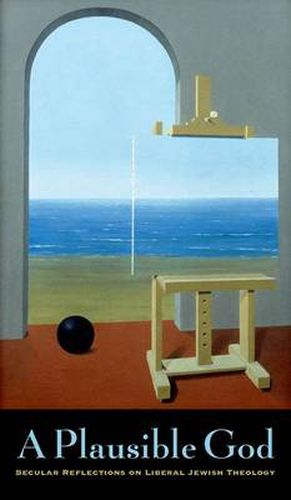Readings Newsletter
Become a Readings Member to make your shopping experience even easier.
Sign in or sign up for free!
You’re not far away from qualifying for FREE standard shipping within Australia
You’ve qualified for FREE standard shipping within Australia
The cart is loading…






At least since the seventeenth century, the traditional God of Judaism, Christianity, and Islam has been under pressure to conform to the scientific worldview. Across the monotheistic traditions there has emerged a liberal conception of God compatible with a thoroughgoing naturalism. For many, this liberal new God is the only credible God. But is it a useful God? Does belief in so malleable a deity come from, or lead to, different political, moral, psychological, or aesthetic phenomena from atheism?
A Plausible God evaluates the new God by analyzing the theology of three recent Jewish thinkers -Mordechai Kaplan, Michael Lerner, and Arthur Green-and compares faith in the new God to disbelief in any gods. Mitchell Silver reveals what is at stake in the choice between naturalistic liberal theology and a nontheistic naturalism without gods. Silver poses the question: If it is to be either the new God or no God, what does-what should-determine the choice?
Although Jewish thinkers are used as the primary exemplars of new God theology, Silver explores developments in contemporary Christian thought, Eastern religious traditions, and New Age religion. A Plausible God constitutes a significant contribution to current discussions of the relationship between science and religion, as well as to discussions regarding the meaning of the idea of God itself in modern life.
$9.00 standard shipping within Australia
FREE standard shipping within Australia for orders over $100.00
Express & International shipping calculated at checkout
At least since the seventeenth century, the traditional God of Judaism, Christianity, and Islam has been under pressure to conform to the scientific worldview. Across the monotheistic traditions there has emerged a liberal conception of God compatible with a thoroughgoing naturalism. For many, this liberal new God is the only credible God. But is it a useful God? Does belief in so malleable a deity come from, or lead to, different political, moral, psychological, or aesthetic phenomena from atheism?
A Plausible God evaluates the new God by analyzing the theology of three recent Jewish thinkers -Mordechai Kaplan, Michael Lerner, and Arthur Green-and compares faith in the new God to disbelief in any gods. Mitchell Silver reveals what is at stake in the choice between naturalistic liberal theology and a nontheistic naturalism without gods. Silver poses the question: If it is to be either the new God or no God, what does-what should-determine the choice?
Although Jewish thinkers are used as the primary exemplars of new God theology, Silver explores developments in contemporary Christian thought, Eastern religious traditions, and New Age religion. A Plausible God constitutes a significant contribution to current discussions of the relationship between science and religion, as well as to discussions regarding the meaning of the idea of God itself in modern life.